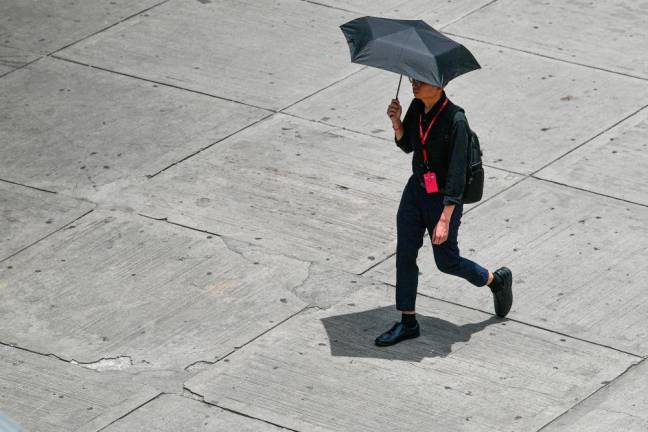WAKING up, freshening up and grabbing a cup of freshly brewed coffee before heading to the corporate world!
Traditionally, drinking coffee is a prominent culture among most Malaysians where we are always seen heading to any retail café, be it international brands such as Starbucks, or just any aromatic local brands to get a good cup of coffee in the morning.
This is also reflective of our rapid changing lifestyle with extensive social media coverage where coffee lovers define the conducive ambience while sipping their freshly brewed coffee, with the aroma of the coffee titillating others around.
Coffee shops have always been in the limelight as the popularity of coffee drinking is gaining momentum as time goes by.
According to International Coffee Organisation (2014), the consumption has increased over the last 50 years, global coffee exports amounted to 11.6 million bags in May 2019 compared with 9.71 million bags in May 2018.
Urbanisation and busy lifestyles are one of the reasons that has caused the rise in coffee consumption in Malaysia.
The coffee drinking culture has been deeply rooted among Malaysians for generations.
The “Old-style” Hainanese coffeeshops, “kopitiams”, and Malay-Indian restaurants or “mamaks” reflect the strong Malaysian coffee drinking culture.
On the other hand, the culture of foreign coffee drinking was immensely influenced by the sudden growth in the number of expatriates in Malaysia.
Since then, foreign cafe culture has notably changed and thus, moulded the coffee shop culture in Malaysia.
In addition, the increasing purchasing power and refined taste buds of consumers have brought about an obvious trend in the consumption of premium coffee.
Therefore, coffee operators must be able to understand the demands of customers from all “walks of life” and be able to consolidate different operational strategies, while satisfying service quality in accordance with consumers’ expectations in order to attract more customers and increase profit.
The level of customer satisfaction has been the main reason for coffee shops to increase their market share.
Hence, in order to increase the customer revisit intention, business owners should take the initiative to identify and fulfil the customer’s needs and to ultimately satisfy them.
Having said that, business owners too must take into account every possible factor that contributes to the growth of customer satisfaction.
Undeniably, customer experience is the key to influence customers’ grading of their levels of satisfaction and to patronise local premium coffee shops in coffee drinking culture today.
Evidently, the coffee culture across the globe has deeply influenced and shaped the café culture in Malaysia, especially in the urban landscape.
Based on my personal observation, local premium coffee shops are popping up like mushrooms after the rain, especially across the highly populated Klang Valley.
Premium coffee cafés have now become a rendezvous for the bourgeoisies and have subsequently led these outlets in the Klang Valley into a competition equivalent to that in The Hunger Games.
Again, the emphasis on customer satisfaction should be second to none as it should be the prime objective of these cafés.
It is important for coffee chain companies to stay competitive to retain existing customers as well as to attract new customers, especially in our multi-ethnic country.
There are certain attributes that would define the local customers as a league of their own such as the labelling of “halal” and “non-halal” products, which draws a clear distinctive line between the two options – to buy or not to buy.
By having a clearer distinction, entrepreneurs can formulate the relevant marketing strategies to attract and retain these customers. Successful customer retention would mean more regular business visitations.
Loyalty is derived from customer satisfaction as customers become loyal when they are satisfied with the offerings provided by companies.
It can be used as a benchmark for owners to achieve. When dissatisfied customers start to seek substitute products or services, the success of an organisation is definitely threatened. When customers’ expectations are met, customer loyalty is born.
The formation of customer satisfaction is important as it can generate plenty of benefits, which include providing a good basis for the repurchase intention and the creation of customer loyalty.
In conclusion, the main drivers of a firm’s success is customer loyalty, profitability and with consumer’s great loyalty to the services provided by a firm, it will generate further spending.
Those loyal consumers will constantly purchase the same products or use its services again because they think rival products or services will not be able to provide them with the same level of satisfaction.
Practically, this article is to offer various insights into the important roles of local premium coffee shop services, as Malaysia’s coffee drinking culture is very strong.
By expressing the knowledge and skills of why coffee is trending, Berjaya University College is offering the Artistry of Bar Beverage and Barista from micro-credential course to Diploma in Hospitality Management as well as a Bachelor in Hospitality Management (Hons).
Dr Ong Siew Har@Chris is acting dean of faculty of hospitality and tourism, Berjaya University College. Comments: letters@thesundaily.com














